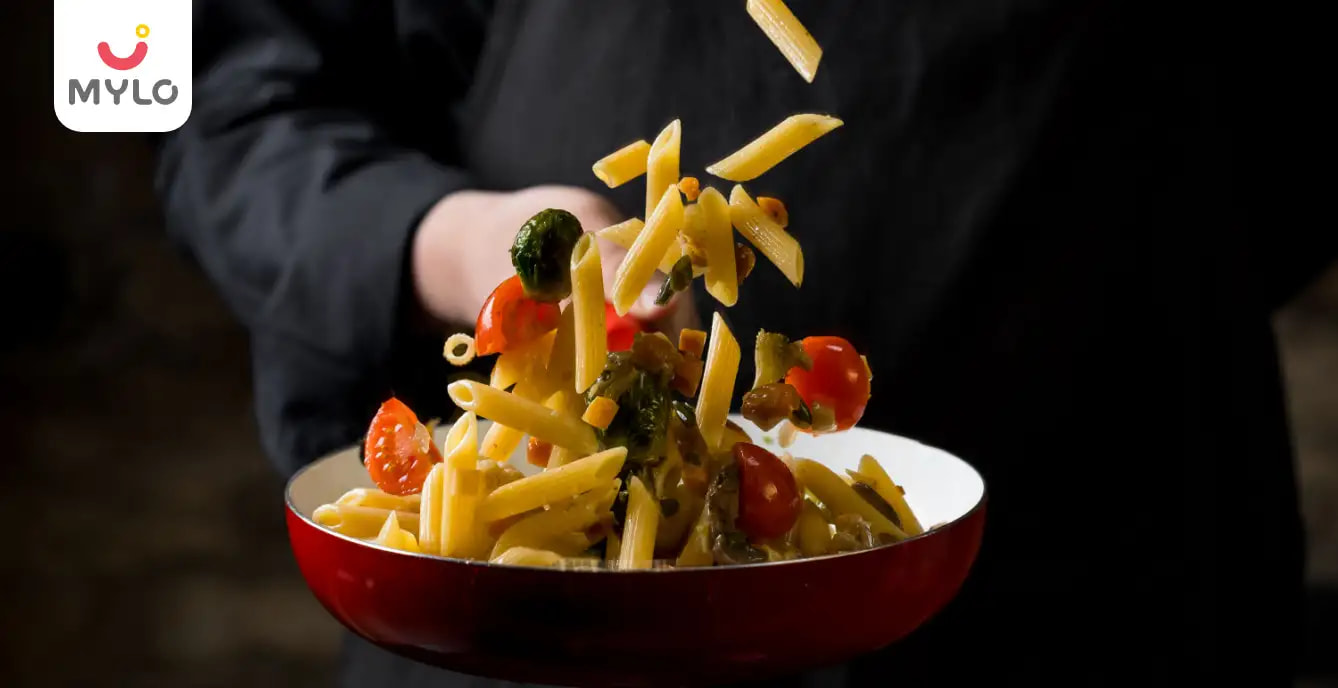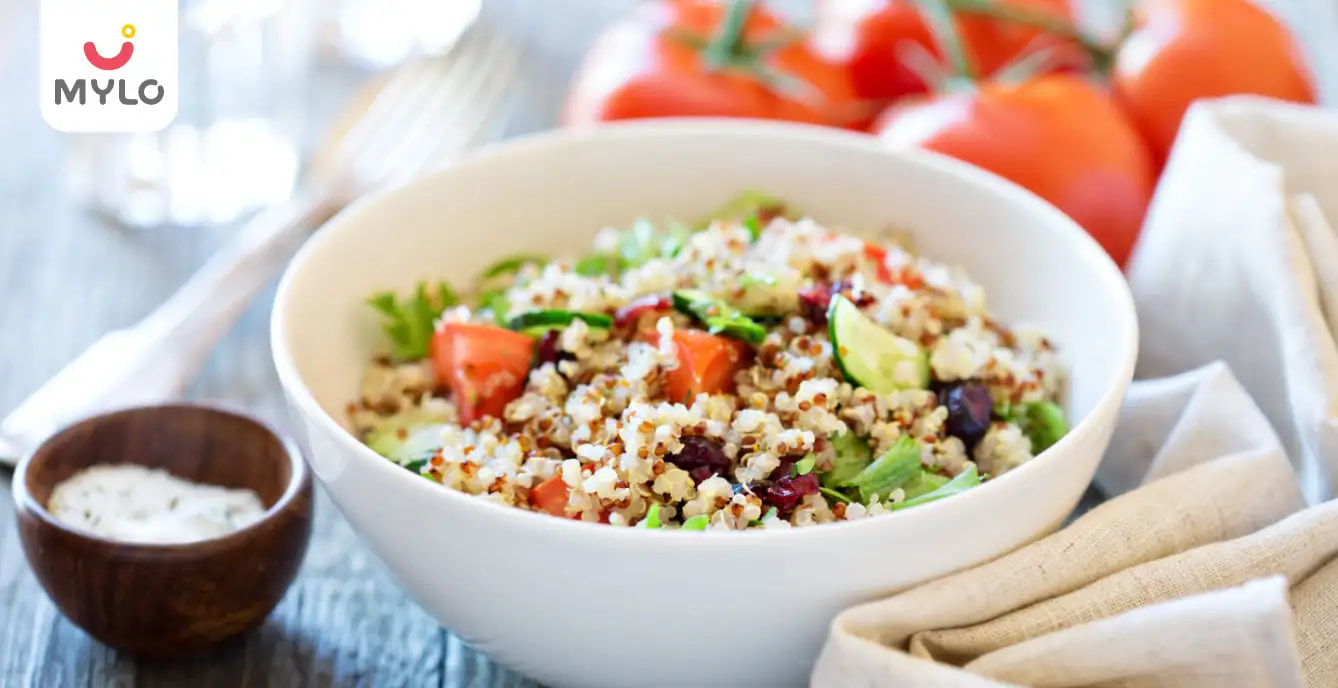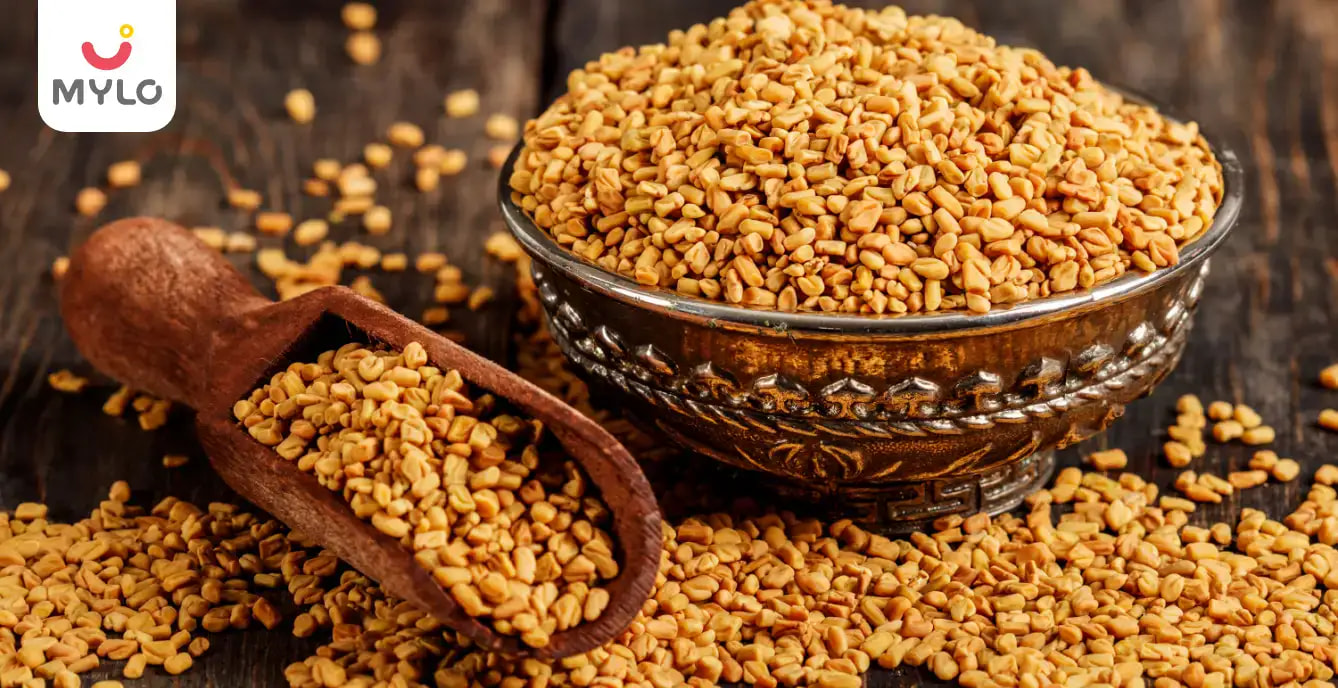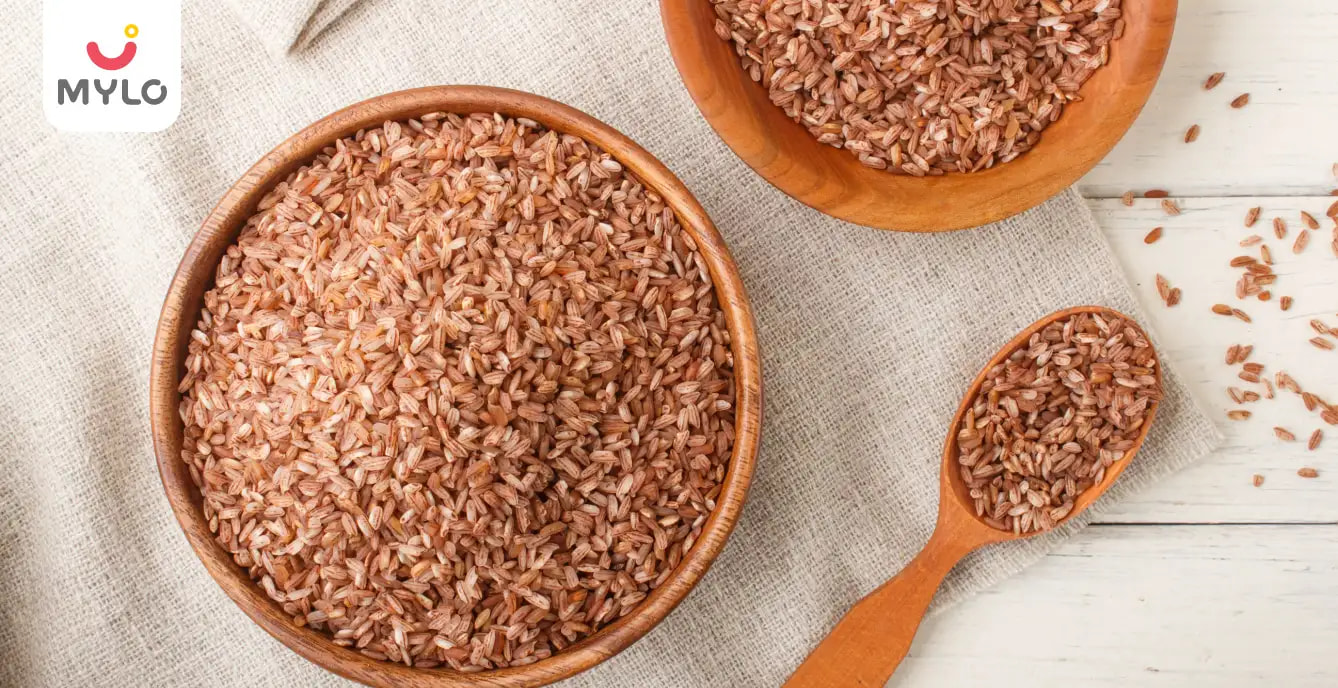Home

Diet & Nutrition

Pasta During Pregnancy: The Ultimate Guide on Nutritional Value, Benefits & Risks
In this Article

Diet & Nutrition
Pasta During Pregnancy: The Ultimate Guide on Nutritional Value, Benefits & Risks
Updated on 3 November 2023
Pasta has long been a staple in many cultures, known for its versatility and delicious taste. But what about pasta during pregnancy? As an expecting mother, it's natural to question can we eat pasta during pregnancy. In this ultimate guide, we will delve into the world of pasta and uncover its benefits, risks, and nutritional value during pregnancy.
Whether you're craving a comforting bowl of spaghetti or wondering if macaroni can provide the nutrients your baby needs, this article will provide you with all the information you need to make informed choices about pasta during this special time in your life.
Nutritional Contents of Pasta
Pasta is primarily made from wheat flour, water, and sometimes eggs. It is a significant source of complex carbohydrates, which are vital for energy production. Additionally, pasta contains essential vitamins and minerals, including B vitamins, iron, and folate.
Although pasta is generally a nutritious food choice, it is essential to opt for whole wheat or whole grain pasta varieties. These options contain higher amounts of fiber and have a lower glycemic index, meaning it releases glucose into the bloodstream more slowly, helping to stabilize blood sugar levels.
Is Pasta Good for Pregnancy?
Many expectant mothers wonder can I eat pasta during pregnancy. The answer is yes, pasta can be a beneficial addition to a pregnant woman's diet. As mentioned earlier, it is a rich source of carbohydrates, which provide the necessary energy for both the mother and the developing baby. It is also a versatile food that can be incorporated into various nutritious recipes.
Furthermore, pasta contains essential nutrients like iron and B vitamins, which are crucial for reducing the risk of anemia and supporting the baby's growth. Iron helps in the production of red blood cells, while B vitamins contribute to the proper functioning of the nervous system. By including pasta in their diet, pregnant women can ensure they receive these vital nutrients.
However, it is important to note that portion control is key. Overconsumption of pasta or any other carbohydrate-rich food can lead to excessive weight gain during pregnancy, which can have negative implications. Moderation and balance are essential to maintain a healthy pregnancy diet.
Types of Pasta That Can Be Consumed During Pregnancy?
Pasta is a tasty and incredibly substantial dish. For expectant mothers, it is important to be aware of the different types of pasta in order to make decisions about what to consume and what to avoid.
1. Regular Pasta
It is made from refined wheat flour. The outer layer and inner germ layer are stripped away during the refinement process, leaving behind the starchy endosperm.
2. Whole Grain Pasta
It contains the wheat kernel's three nutritional layers, including the bran, germ, and endosperm. It has micronutrients and fiber. Compared to regular pasta, it is much more filling and has a number of health advantages.
3. White Blend and Whole Wheat Pasta
These pasta varieties are made with both processed and whole wheat flour. They are less chewy and grainy than varieties made entirely of whole grains, but are more nutrient-dense than standard white pasta.
You may also like: Maggi in Pregnancy: Is It Safe to Enjoy Your Favorite Instant Noodles?
What are the Benefits of Pasta in Pregnancy?
Let us now understand the benefits pasta has to offer to expecting mothers and their babies:
1. Energy Boost
Pasta is an excellent source of carbohydrates, providing a quick and sustained energy boost for both the mother and the developing baby. This energy is crucial for supporting the increased metabolic demands during pregnancy.
2. Nutrient-Rich
Pasta contains essential vitamins and minerals, such as iron, folate, and B vitamins. These nutrients support the baby's growth and development and contribute to the overall well-being of the mother.
3. Digestive Health
Whole wheat and whole grain pasta options are high in fiber, promoting healthy digestion and preventing constipation, a common issue during pregnancy.
4. Versatility
Pasta can be easily incorporated into a variety of nutritious recipes. By combining pasta with vegetables, lean proteins, and healthy fats, pregnant women can create well-rounded meals that provide a range of essential nutrients.
5. Comfort Food
Pregnancy can bring about cravings and mood swings. Pasta can serve as a comforting and satisfying food choice, helping to alleviate cravings and lift spirits.
You may also like: Popcorn During Pregnancy: Benefits & Risks
What are the Risks of Pasta During Pregnancy?
When consumed in moderation pasta has several benefits to offer, however, overindulging in pasta may lead to the following side effects:
1. Excessive Weight Gain
Overconsumption of pasta or any other carbohydrate-rich food can lead to excessive weight gain during pregnancy, which increases the risk of complications such as gestational diabetes and high blood pressure.
2. Processed Varieties
Some pasta options, particularly those made from refined flour, may lack essential nutrients and contain additives. It is crucial to opt for whole wheat or whole grain pasta to ensure maximum nutritional benefits.
3. Sodium Intake
Certain pasta sauces and condiments can be high in sodium. Excessive sodium intake during pregnancy can contribute to fluid retention and high blood pressure. It is advisable to choose low-sodium options or prepare homemade sauces using fresh ingredients.
4. Food Allergies
Some pregnant women may have allergies or sensitivities to specific ingredients used in pasta. It is important to be aware of any potential allergies and avoid pasta varieties that contain those allergens.
5. Gastrointestinal Discomfort
Some pregnant women may experience digestive issues, such as bloating or heartburn, after consuming pasta. This can be due to hormonal changes or individual sensitivities. If these symptoms persist, it is advisable to consult a healthcare professional.
Precautions to Follow While Eating Pasta in Pregnancy
Here are some precautions you can follow to enjoy eating pasta mindfully during pregnancy:
1. Choose Whole Wheat or Whole Grain
Opt for whole wheat or whole grain pasta varieties to ensure higher fiber content and maximum nutritional benefits.
2. Control Portion Sizes
Practice portion control to prevent excessive weight gain. A serving size of pasta is typically around 2 ounces or half a cup.
3. Balance the Meal
Combine pasta with a variety of vegetables, lean proteins, and healthy fats to create a well-balanced meal that provides a range of essential nutrients.
4. Read Labels
When purchasing packaged pasta and sauces, read the labels carefully to avoid varieties with additives or excessive sodium content.
5. Listen to Your Body
Pay attention to how your body reacts to pasta. If you experience any discomfort or adverse reactions, adjust your intake or consult a healthcare professional.
You may also like: Burger During Pregnancy Benefits & Effects
Healthy Pasta Recipes for Pregnant Women
Here are two recipes of pasta that pregnant women can indulge in guilt-free:
1. Whole Wheat Pasta Primavera
Ingredients:
-
8 ounces whole wheat pasta
-
1 cup broccoli florets
-
1 cup sliced bell peppers
-
1 cup sliced zucchini
-
1/2 cup cherry tomatoes, halved
-
2 cloves garlic, minced
-
1 tablespoon olive oil
-
Grated Parmesan cheese (optional)
-
Salt and pepper to taste
Instructions:
-
Cook the pasta according to package instructions. Drain and set aside.
-
In a large skillet, heat the olive oil over medium heat. Add the minced garlic and sauté for a minute until fragrant.
-
Add the broccoli, bell peppers, and zucchini to the skillet. Cook for about 5 minutes until the vegetables are slightly tender.
-
Add the cherry tomatoes and cooked pasta to the skillet. Season with salt and pepper. Stir well to combine.
-
Cook for an additional 2-3 minutes until all the ingredients are heated through.
-
Serve the pasta primavera with a sprinkle of grated Parmesan cheese, if desired.
2. Spinach and Mushroom Pasta
Ingredients:
-
8 ounces whole grain pasta
-
2 cups fresh spinach leaves
-
1 cup sliced mushrooms
-
1/2 cup diced onions
-
2 cloves garlic, minced
-
1 tablespoon olive oil
-
1/4 cup vegetable or chicken broth
-
Salt and pepper to taste
-
Grated Parmesan cheese (optional)
Instructions:
-
Cook the pasta according to package instructions. Drain and set aside.
-
In a large skillet, heat the olive oil over medium heat. Add the minced garlic and diced onions. Sauté until the onions are translucent.
-
Add the sliced mushrooms to the skillet and cook until they release their moisture and start to brown.
-
Add the vegetable or chicken broth to the skillet. Stir in the fresh spinach leaves and cook until wilted.
-
Add the cooked pasta to the skillet and toss well to combine all the ingredients. Season with salt and pepper.
-
Cook for an additional 2-3 minutes until the pasta is heated through.
-
Serve the spinach and mushroom pasta with a sprinkle of grated Parmesan cheese, if desired.
Closing Thoughts
In conclusion, pasta during pregnancy can be a nutritious and delicious addition to your diet. It provides essential carbohydrates, vitamins, and minerals necessary for the mother's energy levels and the baby's growth and development. By choosing whole wheat or whole grain varieties and practicing portion control, pregnant women can enjoy the benefits of pasta while maintaining a healthy pregnancy. As always, it is important to listen to your body, consult a healthcare professional if needed, and enjoy pasta in moderation as part of a well-balanced diet.
References
1. Chen X, Zhao D, Mao X, Xia Y, Baker PN, Zhang H. (2016). Maternal Dietary Patterns and Pregnancy Outcome. Nutrients.
2. Ito M, Maruyama-Funatsuki W, Ikeda TM, Nishio Z, Nagasawa K, Tabiki T, Yamauchi H. (2012). Evaluation of fresh pasta-making properties of extra-strong common wheat (Triticum aestivum L.). Breed Sci.
Tags
Pasta During Pregnancy in Hindi, Pasta During Pregnancy in Tamil, Pasta During Pregnancy in Telugu, Pasta During Pregnancy in Bengali



Written by
Ishmeet Kaur
Ishmeet is an experienced content writer with a demonstrated history of working in the internet industry. She is skilled in Editing, Public Speaking, Blogging, Creative Writing, and Social Media.
Read MoreGet baby's diet chart, and growth tips

Related Articles
Related Topics
RECENTLY PUBLISHED ARTICLES
our most recent articles

Diet & Nutrition
গর্ভাবস্থায় আলুবোখরা: উপকারিতা ও ঝুঁকি | Prunes During Pregnancy: Benefits & Risks in Bengali

Diet & Nutrition
গর্ভাবস্থায় হিং | ঝুঁকি, সুবিধা এবং অন্যান্য চিকিৎসা | Hing During Pregnancy | Risks, Benefits & Other Treatments in Bengali

Women Specific Issues
স্তনের উপর সাদা দাগ: লক্ষণ, কারণ এবং চিকিৎসা | White Spots on Nipple: Causes, Symptoms, and Treatments in Bengali

Diet & Nutrition
গর্ভাবস্থায় পোহা: উপকারিতা, ধরণ এবং রেসিপি | Poha During Pregnancy: Benefits, Types & Recipes in Bengali

Diet & Nutrition
গর্ভাবস্থায় মাছ: উপকারিতা এবং ঝুঁকি | Fish In Pregnancy: Benefits and Risks in Bengali

Diet & Nutrition
গর্ভাবস্থায় রেড ওয়াইন: পার্শ্ব প্রতিক্রিয়া এবং নির্দেশিকা | Red Wine During Pregnancy: Side Effects & Guidelines in Bengali
- ইনার থাই চ্যাফিং: কারণ, উপসর্গ এবং চিকিৎসা | Inner Thigh Chafing: Causes, Symptoms & Treatment in Bengali
- গর্ভাবস্থায় ব্রাউন রাইস: উপকারিতা ও সতর্কতা | Brown Rice During Pregnancy: Benefits & Precautions in Bengali
- Velamentous Cord Insertion - Precautions, Results & Safety
- Unlock the Secret to Flawless Skin: 7 Must-Have Qualities in a Face Serum
- Unlock the Secret to Radiant Skin: How Vitamin C Serum Can Transform Your Complexion
- Gender No Bar: 10 Reasons Why Everyone Needs a Body Lotion
- Unlock the Secret to Radiant Skin How to Choose the Perfect Body Lotion for Your Skin Type
- Top 10 Reasons to Apply a Body Lotion After Every Bath
- Communication in Toddlers: Milestones & Activities
- How to Improve Vocabulary for Toddlers?
- A Comprehensive Guide to Understanding Placenta Accreta
- Vulvovaginitis in Toddlers Causes, Symptoms and Treatment
- A Comprehensive Guide to Understanding Cerebral Palsy in Children
- Bitter Taste in Mouth During Pregnancy: Understanding the Causes and Remedies


AWARDS AND RECOGNITION

Mylo wins Forbes D2C Disruptor award

Mylo wins The Economic Times Promising Brands 2022
AS SEEN IN

- Mylo Care: Effective and science-backed personal care and wellness solutions for a joyful you.
- Mylo Baby: Science-backed, gentle and effective personal care & hygiene range for your little one.
- Mylo Community: Trusted and empathetic community of 10mn+ parents and experts.
Product Categories
baby carrier | baby soap | baby wipes | stretch marks cream | baby cream | baby shampoo | baby massage oil | baby hair oil | stretch marks oil | baby body wash | baby powder | baby lotion | diaper rash cream | newborn diapers | teether | baby kajal | baby diapers | cloth diapers |








